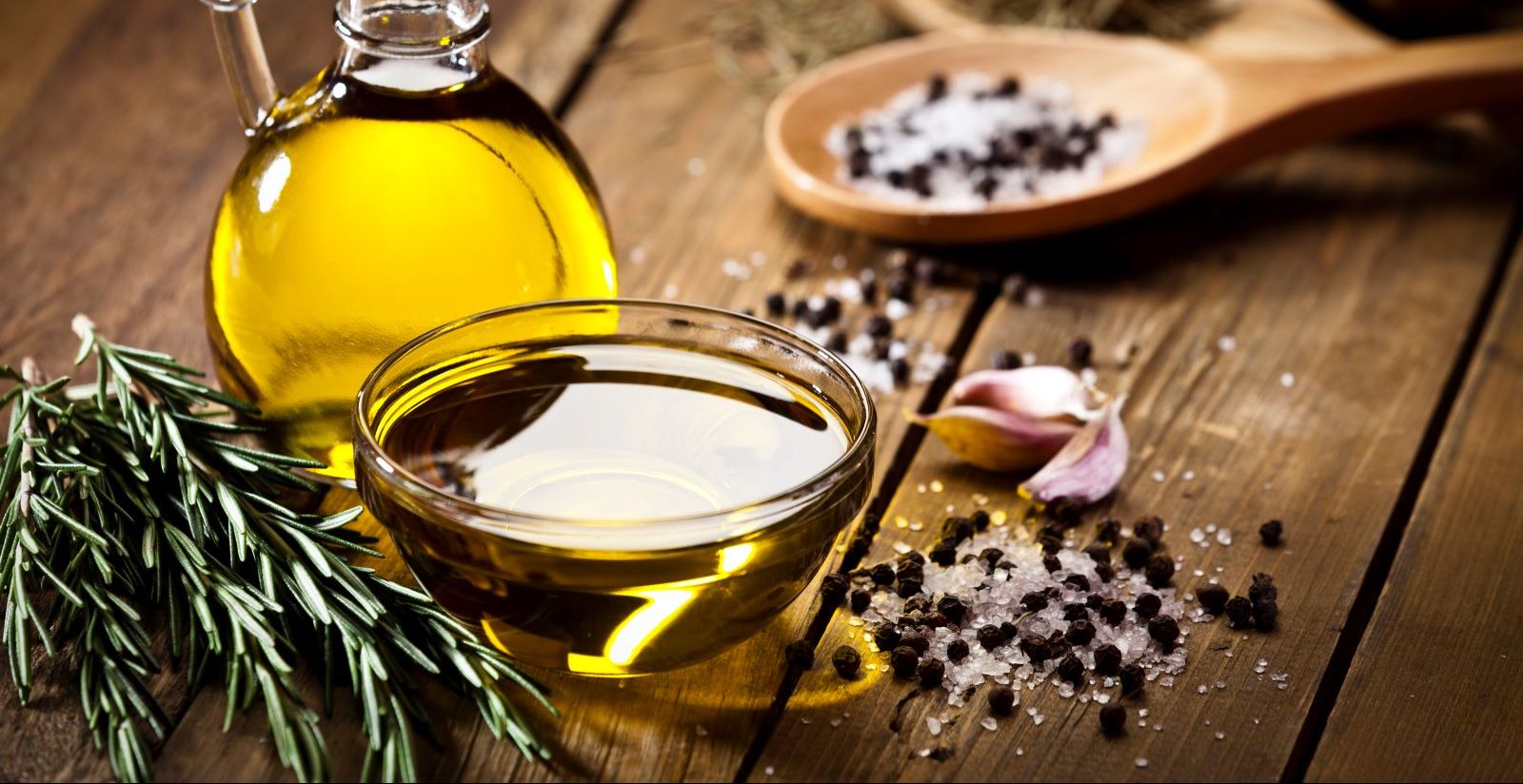<< Back
Nutrition Smack Down: Cooking Oil

May 25, 2023
Internet research on which oils are healthiest for your diet can be a slippery slope.
Coconut oil is good. Coconut oil is bad. Canola is a healthy vegetable oil. Canola will clog your arteries.
Undisputed: partially hydrogenated oil, which is found in processed foods, is the worst. These artificial trans fats are man-made by adding hydrogen to liquid vegetable oils to make them more solid.
We asked Jamie Allers, MS, a registered dietitian with Hartford HealthCare’s Digestive Health Institute, to walk us through the list.
1. Coconut oil
First up – coconut oil.
“The research here is conflicting,” Allers says. “Some research says coconut oil can have a negative impact on your cholesterol levels because it has a higher percentage of saturated fats. Other research says that impact is insignificant because it is a plant-based fat and it can have benefits for you elsewhere.”
2. Palm oil
And the conflict doesn’t end there.
“Read these labels carefully,” Allers advises, because there are differing opinions here too. “Where is it sourced from? Is it processed? Is it a blend with other oils?”
> Nutrition Smack Down: Butter vs. Margarine
3. Canola and other vegetable oils
The broad category of “vegetable oils” includes rock stars olive and avocado oil, as well as canola and soybean. They are all “healthy” in that they are made of unsaturated fats. Problems can arise when the manufacturers start putting these natural plant-based oils through processing in order to make them marketable.
“They want these to be neutral in taste, have a high smoke point, and a long shelf life,” Allers explains. “Processing helps them get there. But that high level of processing can mean that they refine vegetable oils so far that they lose or have reduced their beneficial components.”
As always, Allers says read the labels. If the oil you are buying has an ingredient list longer than one item, it’s been processed. Often generic “vegetable oil” will be blends of different oils, and that can impact the health factor as well.
Additionally, these vegetable oils as well as sunflower, safflower, soy, sesame, and corn oils contain Omega-6 fatty acids, which are not as healthy as the much touted Omega-3 fatty acids we often read about.
Best oils for cooking
Different oils are good for different types of cooking, Allers says. Extra virgin olive oil is best for dressings or cooking with very low heat. If you are pan frying or roasting, opt for avocado oil, which has a much higher smoke point.
“Cold pressed” oils are also healthier because they are unrefined and their nutrients haven’t been broken down by processing.